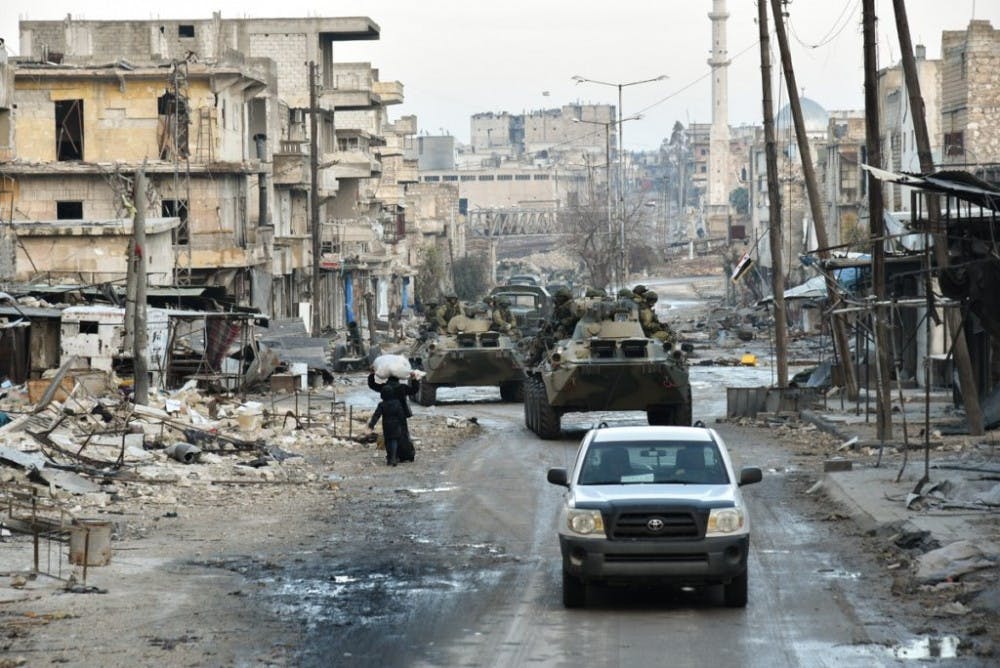The fact that the administration’s foreign policy seems less of a policy than a collection of vague, explicitly-to-subtextually aggressive statements has only been contributing to this pattern.
The military merits of the January Yemen raid, the punitive April Syrian airstrikes on a military base with chemical weapons and the dropping of the “Mother of All Bombs” on an underground network of Daesh tunnels in Afghanistan are certainly vital questions — and are not less so for the fact that Trump himself gave the green light for these actions to be carried out.
From a diplomatic standpoint, however, they raise serious concerns about the administration’s willingness to deploy military force without having a comprehensive, structured strategy which considers the political implications for the future of American international relations. And, of course, the risk to human lives always looms large as a specter over any military engagement.
The raid in Yemen, for example, was purportedly for the purpose of collecting intelligence on Al-Qaeda. Yet it is unclear whether the information present on the devices which were gathered add to the U.S. intelligence on the terrorist group, despite Sean Spicer’s and Trump’s assertions. Moreover, the compromised raid resulted in a Navy SEAL’s death and the deaths of more than 20 civilians, along with strained relations with the Yemeni government.
The glaring question remains: Why then? That Trump had no scruples in giving the go-ahead for this raid (the plans for which had been developed during the last year of the Obama administration) only five days into his presidency, and with a seeming absence of careful deliberation, indicates a lack of discretion. Of course, he was presented with the operation by military officials, but Trump’s own statements that he wants to give the Pentagon greater freedom and independence in making decisions indicate a path that will allow for increased military involvement without a guiding foreign policy.
The airstrike in Syria likewise lacks comprehensive strategic ground. The legal implications of the strike — namely its clear violation of international law and the fact that it certainly poses domestic legal problems — seemed not to factor into the administration’s decision.
It may “punish” Syrian President Bashar al-Assad for using chemical weapons on his own people, but in the context of the greater Syrian crisis, it seems to stop at the level of a slap.
Assad has 26 other military bases from which weapons can be deployed; Daesh remains a complicated perpetrator of terrorism and violence. If the U.S. is unwilling to become further entrenched in the civil war or to combine its efforts with allies to eradicate Daesh, one airstrike comes off more as a show of military power and aggression rather than a dedication to ending war for humanitarian causes.
Indeed, even purporting such a reason seems farcical in the context of Trump’s praise of Assad during his campaign and cruelly hypocritical considering the complete barring of Syrian refugees’ entry to the U.S. The bombing of Afghanistan gives off the same incredibly distasteful impression of machismo sans strategy.
As Robin Wright observes in her article “Trump Drops the Mother of All Bombs on Afghanistan” in The New Yorker, the bombing, like the Syrian airstrike, “has only underscored the shallowness of U.S. political and diplomatic strategy. The United States has been at war in South Asia since 2001, at the cost of hundreds of billions of dollars.
“Since 2011, it has spent tens of millions in training, arming, and aiding Syrian rebels fighting the regime of President Bashar al-Assad. Yet in neither place has Washington figured out how to get beyond killing people — and having to use its biggest bombs.”
This willingness to be militarily aggressive while lacking a clear direction and eschewing the importance of diplomacy becomes treacherous in a context like U.S. relations with North Korea.
Rex Tillerson’s vague comments, including, “our policy of strategic patience has ended,” add to the ominous atmosphere. Trump, Tweeter-in-chief, postures belligerently about America’s ability to “solve the problem” of North Korea without China and scolds North Korea for “behaving very badly.”
North Korea is not a toddler who spilled milk on the carpet and threw his toys everywhere. It is a country developing increasingly frightening nuclear capabilities with a government willing to threaten their use.
While it is unclear what path North Korea will take, that very uncertainty is in part, along with common sense, what should make the U.S. very careful not to provoke the government with an attitude akin to a schoolboy showing off at recess.
Although foreign policy is undeniably complex, the answer is not military might and machismo.
























Please note All comments are eligible for publication in The News-Letter.